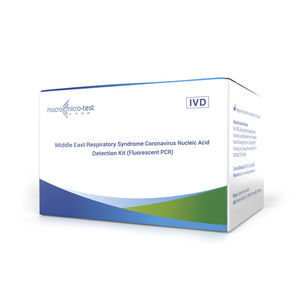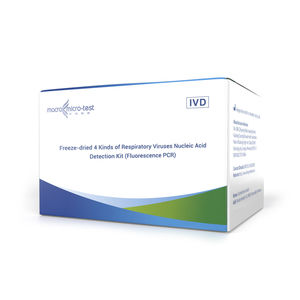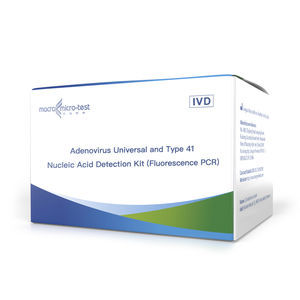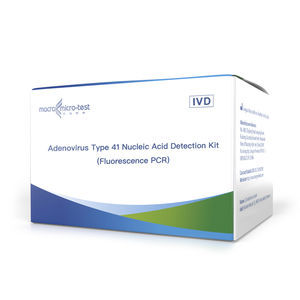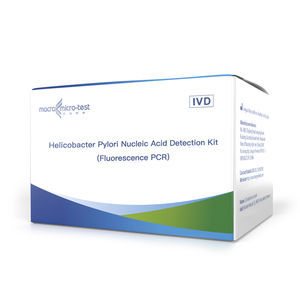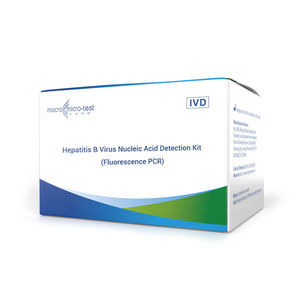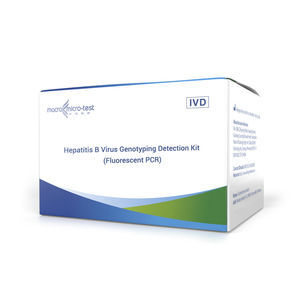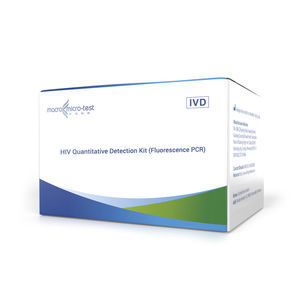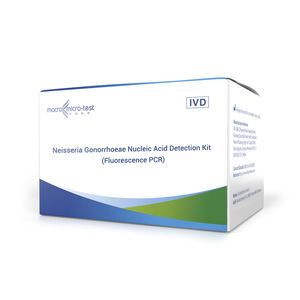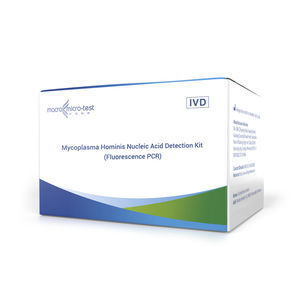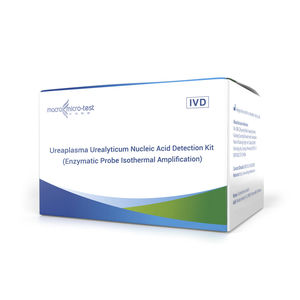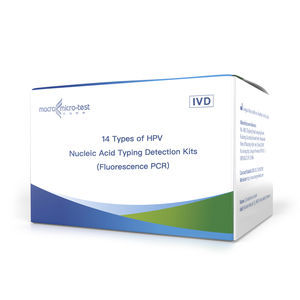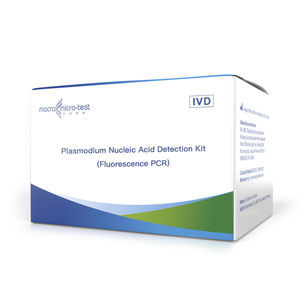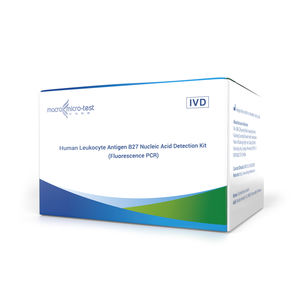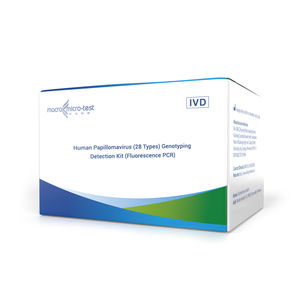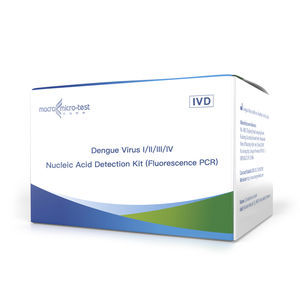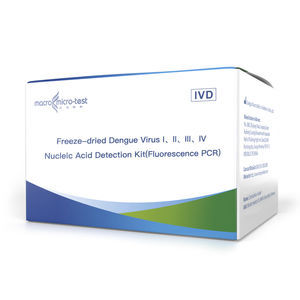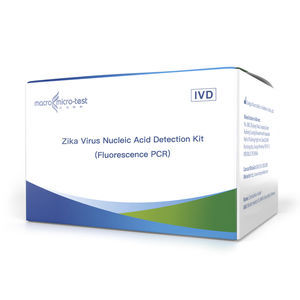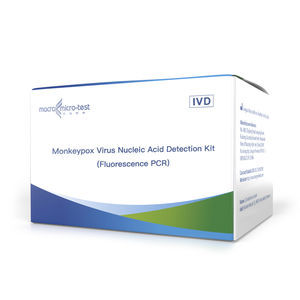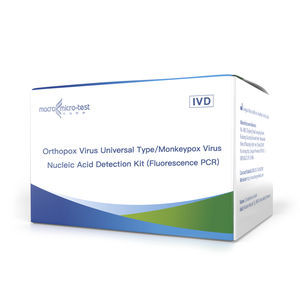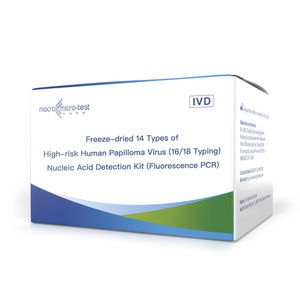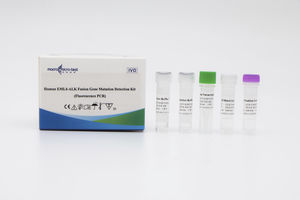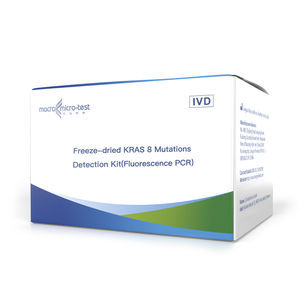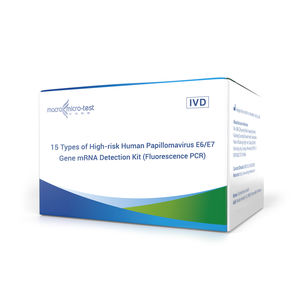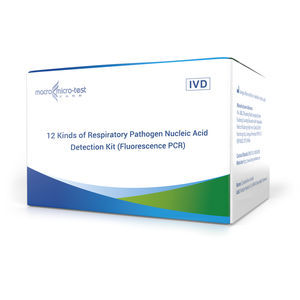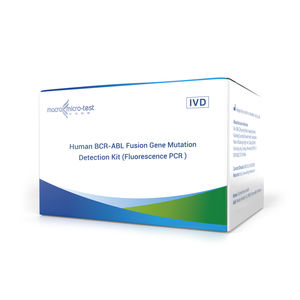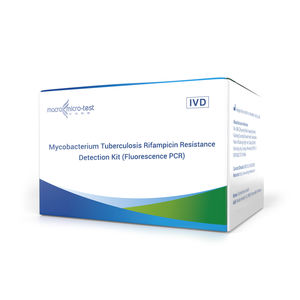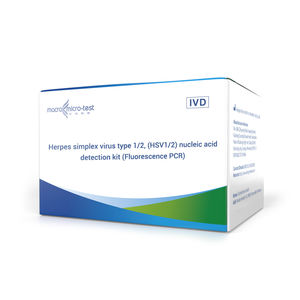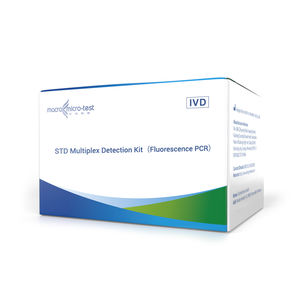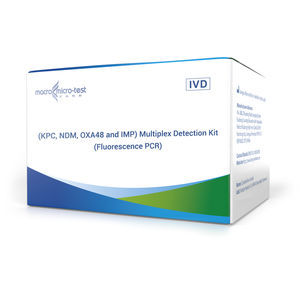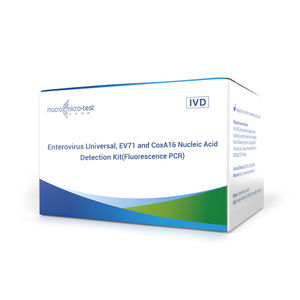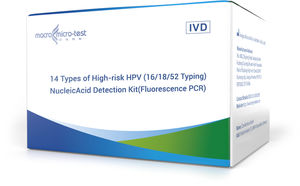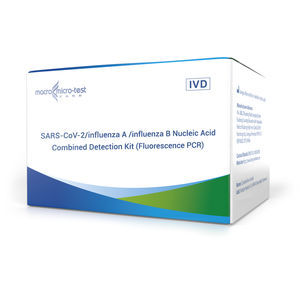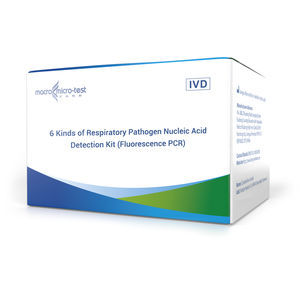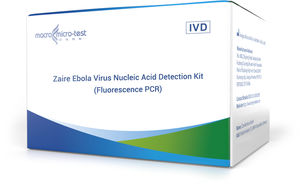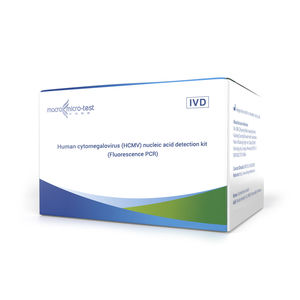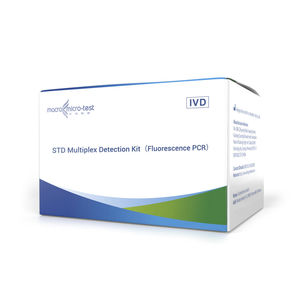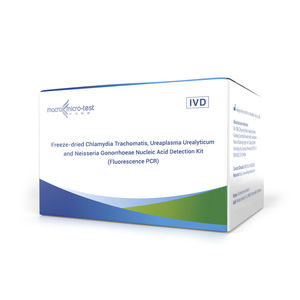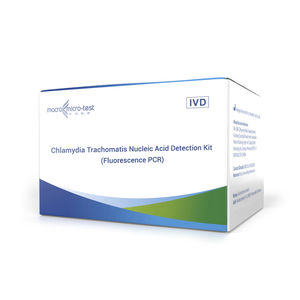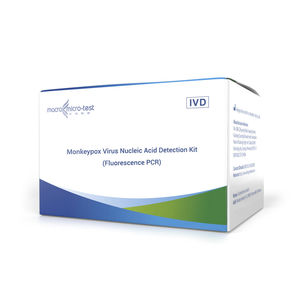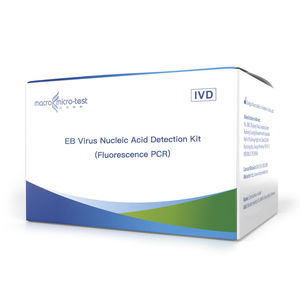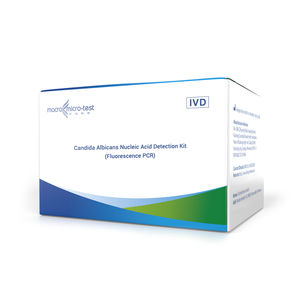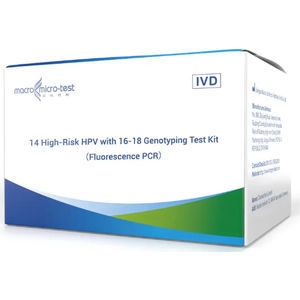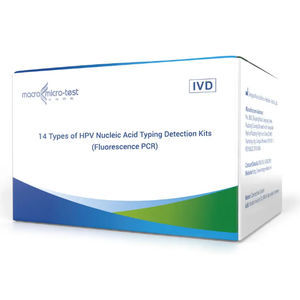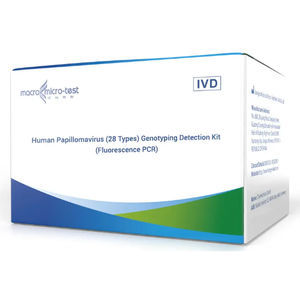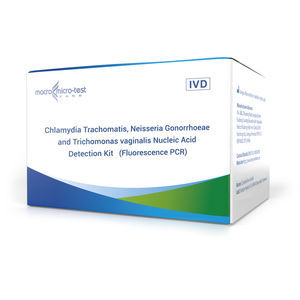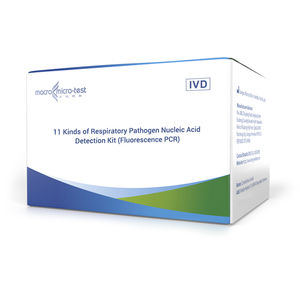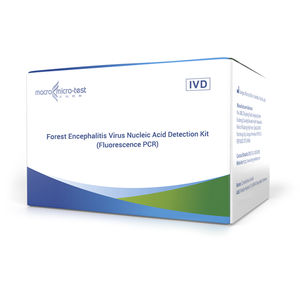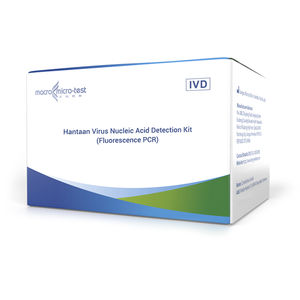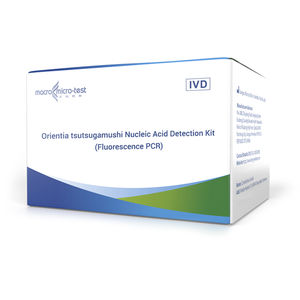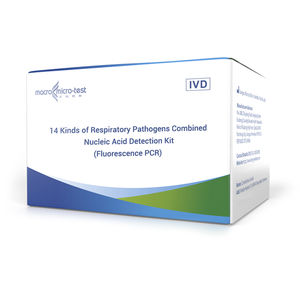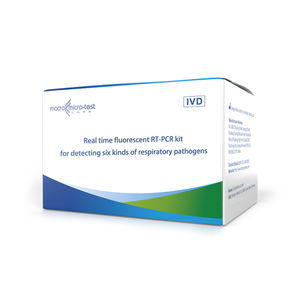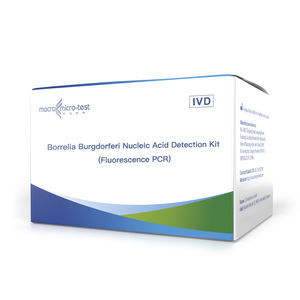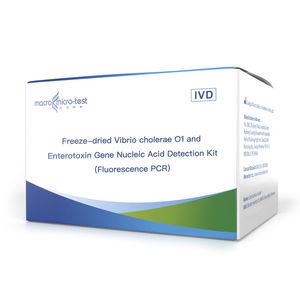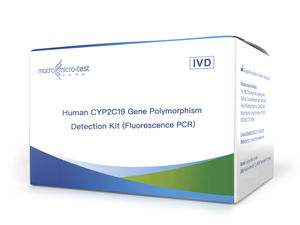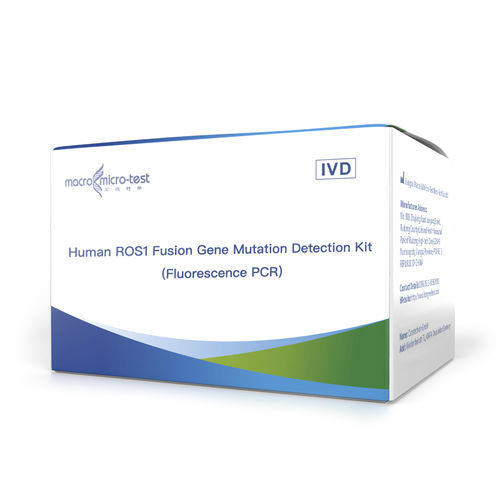
- Laboratory
- Laboratory medicine
- Lung cancer test kit
- Jiangsu Macro micro-test Medical Technology

- Company
- Products
- Catalogs
- News & Trends
- Exhibitions
Genetic mutation test kit HWTS-TM009Bfor lung canceroncologyROS1 Fusion
Add to favorites
Compare this product
Characteristics
- Applications
- for genetic mutations, for lung cancer
- Application field
- oncology
- Tested parameter
- ROS1 Fusion
- Sample type
- FFPE tissues
- Analysis mode
- for RT-PCR, fluorescence
- Result display time
Max.: 90 min
Min.: 60 min
- Specificity
Max.: 99 %
Min.: 97 %
- Sensitivity
Max.: 99 %
Min.: 97 %
Description
This kit is used to in vitro qualitative detection of 14 types of ROS1 fusion gene mutations in human non-small cell lung cancer samples (Table 1). The test results are for clinical reference only and should not be used as the sole basis for individualized treatment of patients. Clinicians should make comprehensive judgments on the test results based on factors such as the patient's condition, drug indications, treatment response, and other laboratory test indicators.
ROS1 is a transmembrane tyrosine kinase of the insulin receptor family. ROS1 fusion gene has been confirmed as another important non-small cell lung cancer driver gene. As a representative of a new unique molecular subtype, the incidence of ROS1 fusion gene in NSCLC About 1% to 2% [1,2]. ROS1 mainly undergoes gene rearrangement in its exons 32, 34, 35 and 36. After it is fused with genes such as CD74, EZR, SLC34A2, and SDC4, it will continue to activate the ROS1 tyrosine kinase region. Abnormally activated ROS1 kinase can activate downstream signaling pathways such as RAS/MAPK/ERK, PI3K/Akt/mTOR, and JAK3/STAT3, thereby participating in the proliferation, differentiation and metastasis of tumor cells, and causing cancer [2].
Catalogs
No catalogs are available for this product.
See all of Jiangsu Macro micro-test Medical Technology‘s catalogsOther Jiangsu Macro micro-test Medical Technology products
FLUORESCENCE PCR
Related Searches
- Assay kit
- Solution reagent kit
- Blood assay kit
- Serum assay kit
- Immunoassay assay kit
- Plasma assay kit
- Infectious disease detection kit
- Blood rapid diagnostic test
- Diagnostic reagent kit
- Immunoassay rapid diagnostic test
- Molecular test kit
- Cassette rapid diagnostic test
- Virus rapid diagnostic test
- Respiratory infection test kit
- Whole blood detection kit
- Serum rapid diagnostic test
- Plasma rapid diagnostic test
- Optical assay kit
- Clinical assay kit
- Infectious disease rapid diagnostic test
*Prices are pre-tax. They exclude delivery charges and customs duties and do not include additional charges for installation or activation options. Prices are indicative only and may vary by country, with changes to the cost of raw materials and exchange rates.

